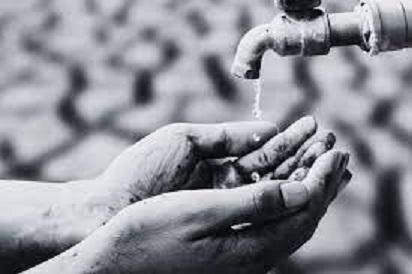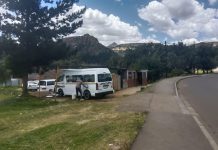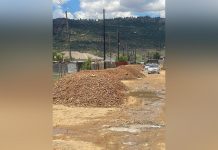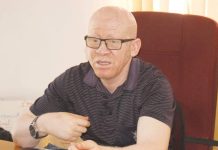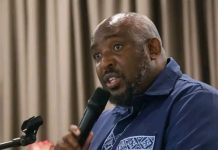Africa-Press – Lesotho. Access to clean and sustainable water and energy resources is instrumental in all the efforts to alleviate poverty for the region’s population. In effect, energy and water are critical ingredients to the SADC Region’s efforts to advance economic development, regional integration and poverty reduction strategies.
Indeed, improvement in access to water and energy is likely to positively impact other aspects of life such as health, education and overall economic development.
This potentially accelerates the achievement of Sustainable Development Goals (SDGs), especially SDGs 6, 7, and 9 on increasing access to safe water and sanitation, access to affordable clean energy and infrastructural development for the industrialisation of the Member States.
Greater influences and active participation in policy-making by political actors and other national leaders are central to building national (or regional) water and energy resource governance mechanisms.
These include equipping political actors with the tools, knowledge and information which will assist them in devising and implementing targeted policies that are likely to improve water and energy resource management in their countries.
Central to the work of the SAPP&D Program, therefore, is the recognition of the potential that political parties and political actors have in supporting inclusive and participatory energy and water policy development processes and their potential to put in place strategies and action plans that would improve access to and management of these resources.
Effective political parties understand the needs of citizens, using these to develop policy positions on issues of communal concern, sparking public discussion and engagement.
It is therefore essential that key political parties be provided with opportunities of engaging with key stakeholders to enhance their capacities in policy development to remain relevant and responsive to societal needs.
To achieve this, the SAPP&D programme in Lesotho has been implementing a number of interventions, including the establishment and facilitation of a Technical Reference Group (TRG) on energy and water as well as the Citizen Score Card initiative for participation and engagement of key stakeholders on issues of water and energy.
The TRG is a multi-stakeholder platform that was established to bring together political parties, civil society organisations, public institutions, the private sector, academia and regional experts in the fields of water and energy to strengthen the policy development capacities of political parties to better respond to and represent the needs of society, particularly in the areas of water and energy resource management.
The TRG also addresses the lack of or inadequate policy development and technical expertise within political parties when it comes to access, inclusion and quality of service delivery concerning clean water and energy.
On the other hand, the Citizen Score Card initiative is a social accountability platform meant to promote the interface between ‘the governed’ and ‘the governing’ with the expected result that these interactions contribute to improved service delivery on water and energy.
The practice of sharing policy spaces between citizens and political actors is expected to lead to healthy, robust dialogues on policy issues impacting the ability of citizens to access water and energy resources, thus facilitating a co-creative process for solutions between citizens and political actors.
In addition, the programme also facilitated engagements between political parties on the one hand and the relevant Parliamentary Portfolio Committee to bridge the gap between political parties and Parliament.
Since 2019, the DWF Lesotho office has held a series of meetings for TRG members, conducted the CSC process, and facilitated the political parties-parliament interface.
These engagements provided consultative platforms through which the stakeholders, as mentioned above, could provide feedback on policy-making, contribute to identifying employment opportunities, and suggest areas for strengthening water and energy policy and social inclusion issues.
Furthermore, the interfaces also served as mechanisms for sharing knowledge and research findings from various actors that would inform political parties in their policy development and policy positioning. THE TRG REFLECTION/REVIEW SESSION: RATIONALE
As the programme is phasing out in 2022, DWF has organised a consultative reflection session with those stakeholders that have either been part of the TRGs or have participated in one way or the other in some of the mentioned engagements with the overall goal of jointly assessing how these platforms and engagements have contributed to their original aspirations as espoused in the SAPP&D Programme Objective No. 1: To strengthen participatory policy and platform development that accurately reflects citizen-identified needs to explicitly include access to clean water and energy management of these resources.
This reflection/review session will seek to realise the following specific objectives: Reflect on the effectiveness of the platforms in supporting political party’s policy-making and development processes in the areas of water, energy and social inclusion
Identify and document the key successes, achievements, best practices, and lessons learnt to underscore the relevance of the TRG platform and other relevant engagements (CSCs, Parliamentary-Political Parties interface meeting) when it comes to capacity building of political parties and enhancement of their (political parties) responsiveness to the needs and aspirations of the people in the areas of water, energy and social inclusion.
Jointly reflect on and identify ways such platforms and engagements can be improved upon and sustained. The reflection session will take place on Thursday, 7th July 2022, at Avani Lesotho Hotel and Casino from 09:00 to 13:00hrs.
For More News And Analysis About Lesotho Follow Africa-Press

